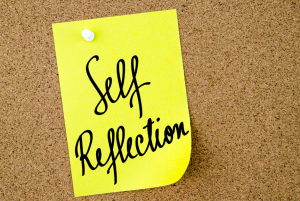
By the CEH training team
Looking inward to reflect on your work and interactions with clients can be helpful for improving your skills, making tough conversations easier, and ultimately leading to more satisfying work. Even though it can be tough to find time for self-reflection, setting aside just a little bit of time each day to practice can really pay off in a big way. In this blog post, we’ll take a look at some simple and effective ways you can make self-reflection a regular part of your routine.
3 simple self-reflection techniques
Integrating self-reflection into your work life doesn’t have to be complicated. In fact, there are several easy ways to engage in self-reflection, such as:
- Setting short objectives before meetings: Before attending a meeting or having a conversation that makes you uncomfortable, establish a clear goal for yourself. Reflect on your progress towards that goal after the meeting to assess your performance and identify areas for improvement.
- Holding short discussions with colleagues: Create opportunities to discuss what’s working and what’s not with your co-workers. This can provide valuable insights, facilitate peer learning, and foster an environment of mutual support.
- Keeping a reflection journal: Spend a few minutes each day jotting down your thoughts and experiences, focusing on areas where you’d like to improve or where you’ve encountered challenges. Review these notes periodically to track your progress and identify patterns.
Self-reflection at CEH
At CEH, we’ve developed several self-reflection techniques, particularly around unconscious bias. We encourage our team members to examine their thought processes and consider how their past experiences and cultural background may be affecting their interactions with clients. These strategies help our team members develop their skills and effectively adapt their conversational style, also minimising the impact of unconscious bias. By dedicating time to self-reflection, we have been able to identify areas for improvement and take meaningful steps towards enhancing the level of service we provide to our clients.
EOFY Special Offer – Free Reflection Session
To support your self-reflection journey, CEH is offering a special promotion until the end of April: purchase a workshop or 30 eLearning licences and receive a free reflection session for your workers. This is an excellent opportunity to foster a culture of self-improvement and reap the benefits of self-reflection. To take advantage of this offer, contact us at Contact – Centre for Culture, Ethnicity & Health (ceh.org.au)
Putting it into practice
Remember Nandita from our previous blog post? She discovered the secret to effective communication with interpreters: building trust. Similarly, self-reflection is the key to enhancing your skills and making difficult conversations a little easier. By setting short-term goals, collaborating with colleagues, or keeping a personal reflection journal, you can easily integrate self-reflection into your daily routine and enjoy the benefits of improved performance and job satisfaction. And if you’re interested in learning more, don’t hesitate to reach out to us. We’re happy to discuss how you can make self-reflection a regular practice in your workplace and provide a free reflection session for your team through our special offer.
Resources to help you continue your learning journey
If you’d like to explore more resources for professional development, check out the following:
Our FREE members page, where you’ll find webinars on working with interpreters, translators, and people from diverse cultural and linguistic backgrounds: Members Area
Our Resource Hub, where you can search and download free resources on a variety of topics related to culture, ethnicity, and health: Resource Hub – Centre for Culture, Ethnicity & Health
Our contact page, where you can enquire about workshops on working with interpreters and other relevant topics: Contact – Centre for Culture, Ethnicity & Health (ceh.org.au)
Stay tuned for more tips and resources from the CEH training team.
